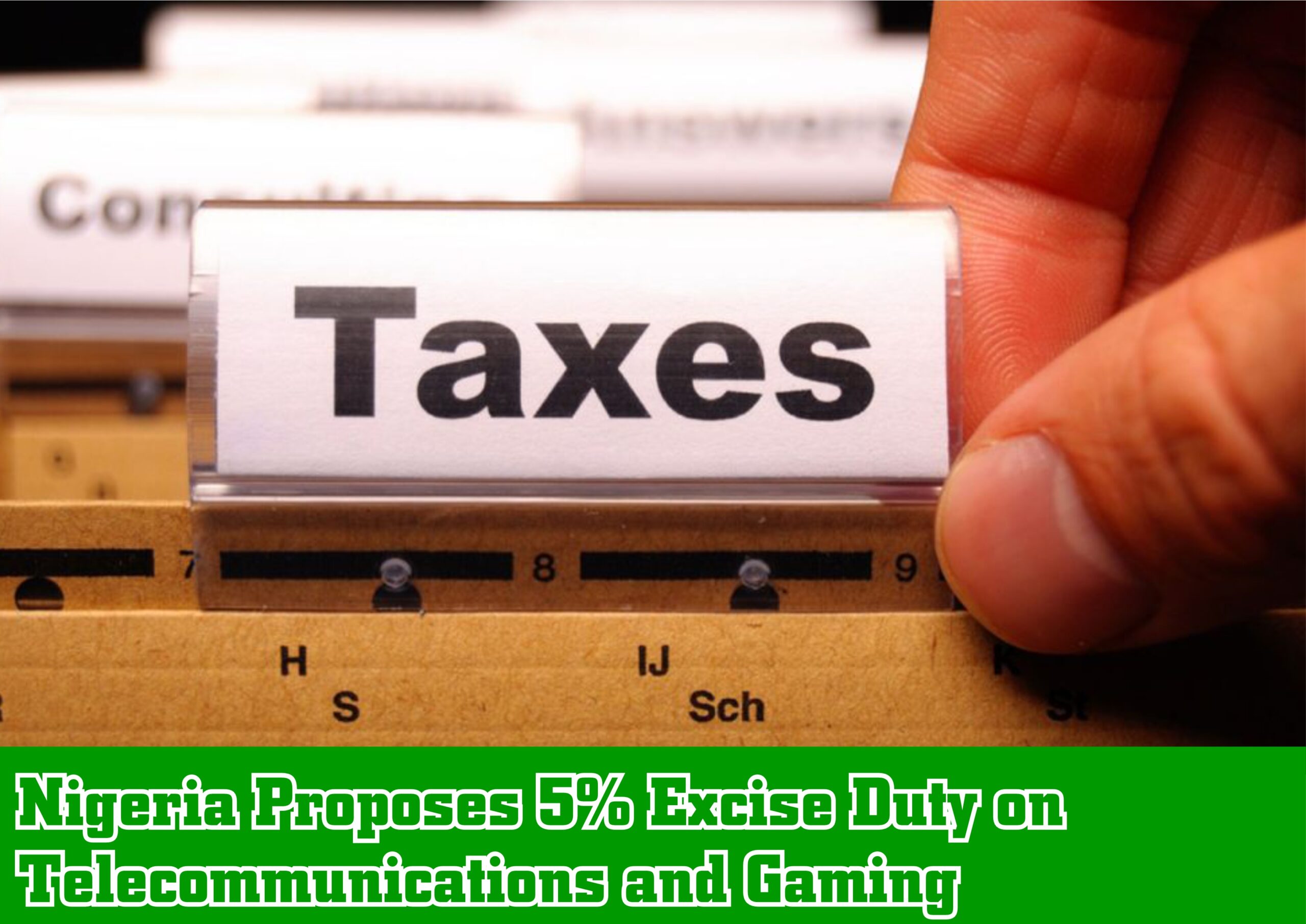In order to shore up the nation’s revenue, the Federal Government of Nigeria has proposed a 5 percent excise duty on telecommunications services. Similar taxation is also proposed for gaming, gambling, lotteries, and betting operations.
This is part of a far-reaching tax reform program designed to diversify the nation’s revenue base, lessen reliance on oil receipts, and deepen fiscal stability in the face of current economic vicissitudes.
The Reason Behind the Tax Proposal
- Diversification of Revenue Bases: Conventionally, Nigeria depends on oil as the major revenue earner. The volatility in global oil prices, coupled with problems in oil production in the country, has made it important for the government to seek other means of revenue. The telecommunications and gaming industries are two such sectors that have been very resilient and exhibiting growth, making them attractive targets for taxation.
- Economic Growth of the Telecom Sector: The tremendous growth within the Nigerian telecommunication sector, now reporting above 200 million mobile subscriptions and rapidly increasing internet penetration, places it as one of the largest contributors to the nation’s GDP. This growth has opened a huge revenue generation avenue for the government. A 5% excise duty will be levied on the industry in a move by the government to capitalize on the resultant economic boom.
- Expansion in the Gaming and Betting Industries: There is also exponential growth in the gaming and betting industries due to broader access to the internet and increased usage of mobile phones. Given this trend, the government seems to recognize these industries as an avenue through which additional tax revenues can be generated towards financing public activities.
Major Provisions Under the Proposed Tax
1. Excise Duty on Telecommunication Services: Excise duty at the rate of 5% shall be applied on the following telecommunication services, amongst others:
- Postpaid and Prepaid Plans: The new tax will result in higher bills on monthly subscription by the consumers, because the service providers would be increasing the prices to accommodate the new tax.
- Data Services: Even as mobile data continues to rise, the new tax will fall on users who use it for communication as well as other business-related activities.
2. Gaming, Gambling, and Betting Services: The same 5% excise duty shall apply.
- Online Gaming Platforms: This tax will also be imposed on popular online gaming websites and mobile applications serving the Nigerian market. Other sectors include betting services, where the imposition of excise duty will reach both traditional betting shops and online platforms, hence probably impacting the odds and overall participation by users.
3. The tax bill also includes provisions for currency transactions to be at the CBN official rates. Excise duties shall be payable on any transaction rates that differ from what is determined and published by the CBN. It will help in normalizing the currency exchange practice as well as increasing the revenue of the government that comes from operations relating to currency.
Economic Implications
- Consumers: This 5% excise tax will translate into increased costs on the part of consumers once it is implemented. In any case, it is expected that telecom operators will pass on the tax by charging more for calls, texts, and data services. This raises questions about the ability to afford such services by low-income users who rely heavily on mobile services either for communication or accessing information.
- The new tax is likely to raise the cost of operations for the telecommunications and gaming companies. That being the case, operators would need to revisit strategies in the pricing, cost control, and their service portfolio to ensure sustainability in profitability. Some firms may consider efficiency improvement or technology investments that would assist them in absorbing the cost implication of the tax imposed.
- Revenue Generation Potential: The government expects this tax to increase non-petroleum revenues tremendously. Therefore, based on the enormous growth in the industries of telecommunications and gaming, it is believed that the excise duty will garner considerable receipts for the public purse toward the provision of social services and other infrastructural developments.
Public and Industry Reactions
Mixed reactions have been recorded from various stakeholders with regard to the proposal:
- Support by the government: This new excise duty has been reasoned by officials as a means of economically stabilizing the country and enabling the government to finance vital services like healthcare, education, and infrastructural development.
- Concerns Voiced by Industry Stakeholders: Representatives of the telecom and online gaming industries have expressed their concerns about negative consequences for end-consumer prices and overall market competitiveness. They warn of the limits imposed on access to such essential services, primarily because of the increased financial burden it places on consumers.
- Public Sentiment: The tax has not been welcomed by many in the country, who are afraid it will just worsen their already worsening financial situation due to inflation and economic instability. The likelihood of higher bills and service costs led to calls for openness on what the revenues put together would be used for.
Conclusion
A proposed 5% excise duty on telecommunications and gaming services-one of the ways in which the streams of accruals of income are being diversified, away from relying so much on oil income-the government has been employing.
Any such earnings accruing from this tax could be applied in further improving the public service, but it does raise major concerns about affordability and access. As the bill makes its way through the legislative process, stakeholders may be closely watching what implications it has for the landscape of telecommunications, consumer behavior, and the wider economy.








